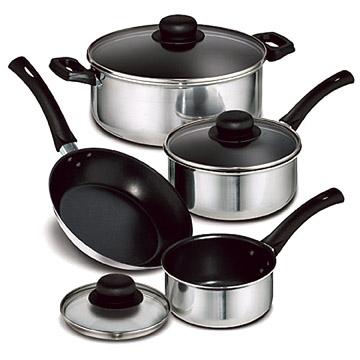Q: Despite the fact that a link between aluminum cookware and Alzheimer’s disease has been proven false, I still prefer to avoid using aluminum pots. However, all the stainless steel cookware that I’ve seen has aluminum in the base.So, is it better to use enameled cookware, stainless steel or stainless steel only if the aluminum is sandwiched in steel so it’s not in contact with the food? —Pot Watcher A: The link between aluminum and Alzheimer’s, which was based on the discovery of trace aluminum in the brains of Alzheimer’s victims, has been disproved. But aluminum can harm the kidneys and has been shown to leach phosphorus and calcium from the body, which is bad for bones, so you’re right to want to avoid it.This is difficult, however, because aluminum is everywhere. It’s the most abundant mineral in the Earth’s crust and it’s ubiquitous in plants, soil and water. It’s also commonly used in antiperspirant, antacids and, as you noted, cookware, where aluminum is only a threat when acidic ingredients like wine, vinegar, tomatoes and other fruits are cooked in it. The acid causes the aluminum to leach into the food.I avoid aluminum cookware, as well as pots made from anodized aluminum, wherein the aluminum surface is electrochemically treated with a coating of aluminum oxide, which doesn’t react with acid. I avoid anodized aluminum cookware because the coating can get scratched, opening the door to aluminum exposure.Aluminum is popular in cookware because it conducts heat evenly and quickly. Stainless steel is a poor heat conductor, so aluminum is often used as the core of the base and sides of stainless steel cookware. The aluminum-core variety is sufficiently contained that it shouldn’t be a problem. But if you really want to avoid aluminum, get copper-core stainless steel.
Send your food and garden queries to flash@flashinthepan.net


